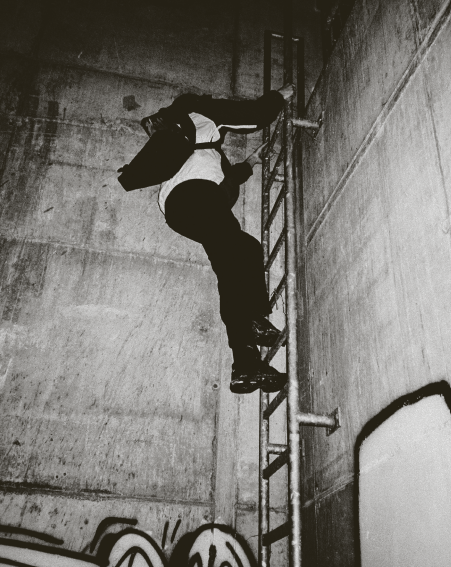Wir wählen Interviewpartner:innen aus, die wir zum Zeitpunkt des Interviews persönlich spannend und inhaltlich anregend finden. Bei einigen finden wir das nach Jahren immer noch – bei anderen nicht. Auch letztere findet ihr hier weiterhin online, weil wir transparent damit umgehen möchten.
SaZ sprach mit der großartigen Amanda Palmer, die gemeinsam mit ihrer Band The Grand Theft Orchestra auf ihrer dritten Europa-Tour in Berlin landete.
SaZ: Hi Amanda! We are big fans of yours, and we are quite amazed that all of your music is available as a free download. You once said “Don’t make people pay, let them”. How does this work?
Palmer: I generally think this is the correct philosophy because digital is free and everyone knows it. The big problem musicians have to face is how to educate your audience that if they don’t help you, there isn’t some other magical force that’s going to pay for your music. The statistics for who does pay for the music, when given the opportunity, are pretty staggeringly disappointing. Especially for an artist like me: I’m the poster child who invites help openly and who has a very open dialogue with my fans. And even then the majority of people take the music for free.
SaZ: Do people think that you are so big and well off?
Palmer: There are a lot of weird ideas around it. I also encourage people who take the music for free to come to a gig to make sure that the income comes back to me somehow. I think it generally works, but I’ll continue to experiment with how I price music.
SaZ: But are you able to pay your rent and other stuff?
Palmer: Well, my situation is a little complicated, because I am married to Neil Gaiman (Anmerkung d. Redaktion: Science-Fiction- und Fantasy-Autor) who is really rich. That means I have a safety net that other artists don’t have. If I do some huge experiment and it crashes and burns, I don’t have to go to the band to borrow money, I can easily sponge off my husband. It’s important for me to remind people that that’s a reality of my life, but not of the other musicians on tour with me. That has been difficult for me to come to terms with, I felt guilty about this advantage. It’s interesting to be open and to talk about it, because usually everyone’s just like “Eeew, such an uncomfortable topic”. But why would I not be open and honest about it? It can also be an advantage if I’m trying to help the musicians around me by taking the risks that others can’t, because they can loose their money. They have to pay the rent.
SaZ: As a feminist, did you have a problem that there is a certain dependence on your husband?
Palmer: No, because I’m not dependent on my husband, I could make so much money if I wanted to that I don’t worry about it. I know I can go to every city and get ten grand for a gig. I think if I didn’t have that freedom, it would be too hard for me. Neil and I had this struggle all over our relationship, because we are both powerful in our own worlds, but he is ahead of me by 16 years and has been doing his career for much longer. We look at each other and try to figure out how we can help each other. To me, that doesn’t have anything to do with feminism because I know that there is a lot of things that I do for him and help him with that he couldn’t do by himself. We support each other, and sometimes it’s money and sometimes it’s energy and sometimes it’s signal boosting and sometimes it’s emotional. As a feminist, I was struggling even getting married to him. I thought I might lose all my feminist credibility, that all my emboldened independence and my “Fuck the Men” credits could go down the toilet if I get married.
SaZ: Why?
Palmer: I really never wanted to get married. I’m not a huge fan of the institution, I think it’s an outdated bullshit structure. But we were very practical about it, and a big part of it for Neil was that he wanted people to take me seriously in his world. I am in my world with my punkrock musician friends, they don’t give a shit whether I’m married or not. But he wanted to fast-track the “Taking Amanda Palmer serious” part, especially because of our age difference. For him to be able to say “This is my wife”, not “This is the hot rock star chick that I am banging this week” really makes a giant difference. People treat me differently, with more respect. Is that fucked? Of course it’s fucked, it’s a stupid system, but it’s also a reality. I love to think that people come to the point where they don’t have to marry to get that point of freedom. But in our case it just made everything so much easier.
SaZ: Speaking of feminism, you wrote on Tumblr that being a feminist can also be apolitical. Isn’t feminism always and by definition political?
Palmer: Isn’t everything political? Isn’t being apolitical already political? I think there are too many parts about feminism that are bullshit. That’s pretty much how I felt all my life. I didn’t want to get trapped in the bubble of feminism, because most feminists are so irritating to me. They are so narrow-minded about what freedom is. I don’t think you’re able to talk about feminism without talking about freedom for everybody. Which then winds up including everything like racism and classism and pretty much all sexual-issues thrown in one pot. You can’t go out there saying: “I want women to be happy and equal.”
SaZ: Which other irritating parts do you mean?
Palmer: The kind of anti-men “Fuck the Patriarchy”, the kind of anger and closeness that you see in a lot of feminist rants. I don’t believe that’s progress. I don’t believe you get there by yelling and I actually think that’s counterproductive.
SaZ: But is change actually possible without also being bold and aggressive?
Palmer: Sure, I’m not saying there isn’t a place for anger! If you are being oppressed you have every right to be angry. But it’s not sustainable. If your goal is like mine, to make everybody happy, you can amp the anger up, but you also have to do it compassionately enough that you’re not slashing and burning the field while you’re also trying to fix and balance the situation.
SaZ: In your song “Dear Daily Mail” you mention an article in that newspaper which didn’t talk at about your music but only about your boobs. How do you deal with sexism in the music industry?
Palmer: Things like that don’t make me angry because they are so silly. Nothing about this article is gonna hurt me. It was this obvious tabloid-sensational thing, all these people in the newsroom going like: “Oh, look a boob”. It’s just so infantile.
SaZ: But the same infantile behavior is a big problem for a lot of women who don’t have the cultural or financial means to speak out against it.
Palmer: That is is why the internet is so powerful. And why sites like everydaysexism.com are great. It’s great to see teenage girls getting this alternative education, because they are so slammed by the general mass media about what’s acceptable, what’s expected, what’s normal. It’s this giant underground network of women fighting a mass media oppression, by simply sharing information. Because information is so powerful. And since the internet gives us free access to each other, it will be or already is the next wave of feminism. Normally you could only chat with your friends and you had to rely on the TV and the radio and the newspapers to tell you what was going on. Now we hear what’s going on directly from each other. And that is obviously different from what we are being fed. We really start to see the schism, and that will create a change hopefully.
SaZ: Yes, the internet gives us the possibility to communicate, but it also produces a lot of normative images of how boys and girls should be like.
Palmer: Well, it’s up to the people using it which side they want to be on. The tools are so new, the etiquette is barely in place and our little brains are exploding. It will take some time to settle and hopefully in a positive way.
SaZ: To continue our talk about feminism: You worked as a stripper for a while. At the moment there are debates in Germany and France about banning sex work. What do you think about that?
Palmer: I think you have to normalize it and make it very very safe. If you ban it, then you wind up in a more fucked-up situation and you wind up having sex-slaves. There aren’t a lot of women hiring prostitutes, but there are definitely a lot of men. If you ban it, I don’t think men will be like “Oh, okay”. They are going to do it illegally and it’s gonna be very dangerous for the women involved. It already is. And so, deal with the reality. If the reality is that men want to pay for sex, make it as safe as possible for the women. So these women don’t live a life of horror. My assumption is that if you can normalize and make prostitution safe, you’d probably see crime and abuse go down, like with normalizing certain drugs. You would actually fix some endemic social problems.
SaZ: Thanks so much for this lovely conversation!


